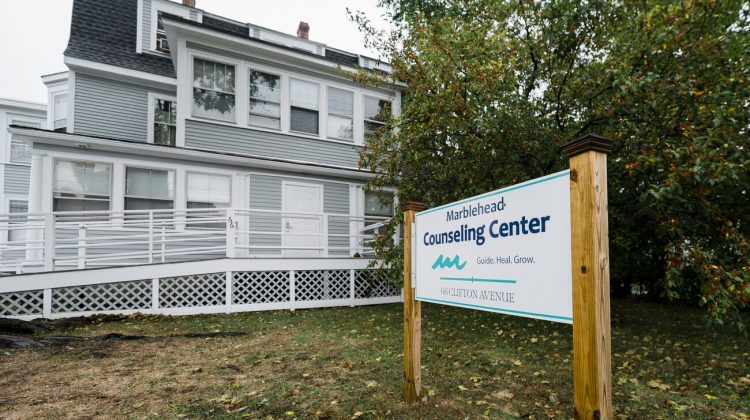Despite facing large waitlists, budgetary struggles, and staffing issues over the last few years, the Marblehead Counseling Center is still pushing forward as the year comes to a close.
Board of Directors Chair and President Ruth Ferguson and Vice President Ron Grenier provided an update on the current state of the counseling center at a recent Board of Health meeting. Ferguson reported that in the last nine months, the Counseling Center has “hired new key staff, making important improvements to our administrative infrastructure through software and equipment upgrades, and initiating improvements to the Hobbs building.”
Despite recent upgrades in staffing and resources, Ferguson noted that client treatment, especially for young people, now requires more attention than ever due to more layers of trauma than in the past.
She also noted that the elderly population is “the next largest cohort with serious challenges and issues that we’ve seen increase over the last few years,” noting that town funding is integral to providing the center with the resources it needs to help its clients.
That funding has seen a steep decrease in the last decade. Board of Health member Joanne Miller said that the board used to provide $120,000 in funding to the center, an amount which has since been cut in half.
This year, Ferguson said that the board was able to provide the center with $120,000 through ARPA funds, however Miller said she would like to see the board get back to being able to provide that amount on a regular basis.
“I think, as a board, we should continue to have conversations. How can we get back to where we were 10 years ago?” Miller said.
Town funding, however, isn’t the only method that the center relies on. This past spring, it was awarded a three-year grant from the Cummings Foundation to “support our efforts in bringing in staff and training them,” Ferguson said.
The onset of the COVID-19 pandemic propelled a mental-health emergency nationwide that has not slowed down. As a result, many counseling centers and providers have large waitlists due to a lack of adequate staffing and resources.
Last year, Ferguson reported to the Mental Health Task Force that more than 200 people were on the center’s waitlist. In an interview, she said that this year, while there have been many improvements at the center, the waitlist still remains largely unchanged. The center is looking into ways to combat the issue, such as finding new therapists.
Grants like the one received from the Cummings Foundation play an important role in that process.
Other fundraisers in town, like A Night at the Gerry, which was held last month, and the Counseling Center’s biannual golf tournament, also help to provide necessary funds. Ferguson hopes to expand and continue events like the one held at the Gerry into the new year.
“This was our second annual one and it was more successful than the first,” she said. “So, we’re hoping every year it will grow.”
As the needs for mental-health counseling continue to rise, the Counseling Center continues to do everything it can to provide for its clients with limited resources. At the meeting, the update led to preliminary discussions on how the board would be able to phase in more funding for the center in the future.
“The town has been wonderful to us,” Grenier said. “But I welcome Ms. Miller’s comments that the board stay vigilant about any funds that come to the town, where maybe, that’s a way to make up for the $60K in whatever way it can.”

